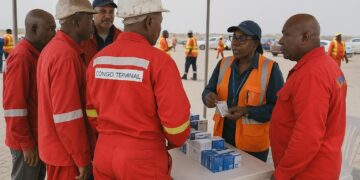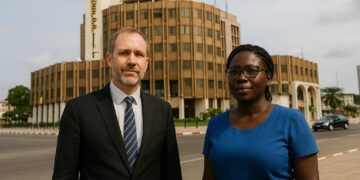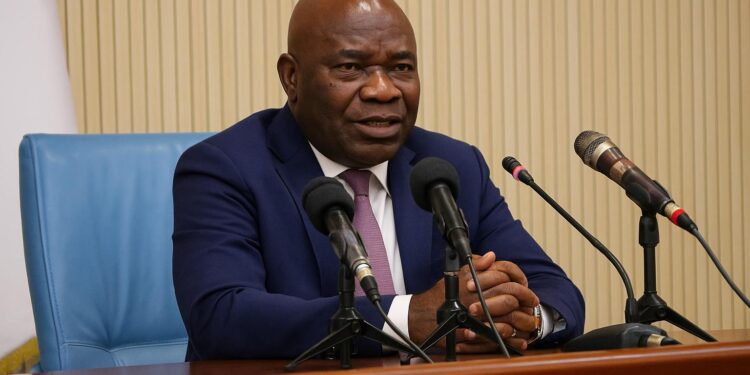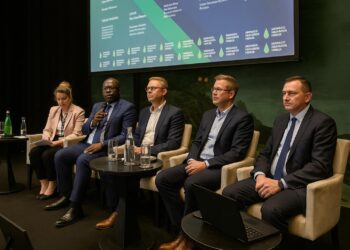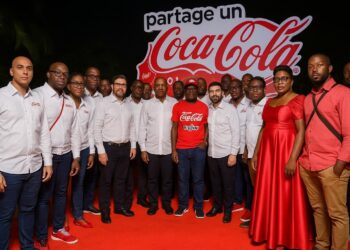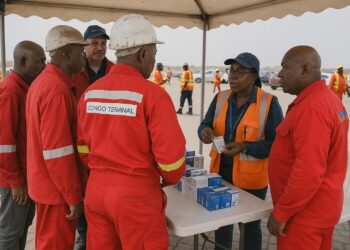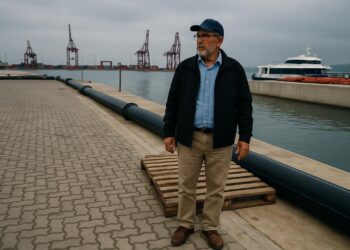Strategic Continuity at the Top
In Brazzaville on 20 October 2023, Maixent Raoul Ominga secured a renewed five-year mandate as director-general of Société Nationale des Pétroles du Congo, SNPC. The appointment, confirmed by President Denis Sassou Nguesso, anchors continuity at the helm of the state oil champion for a critical economic cycle.
Ominga immediately expressed gratitude to the Head of State, noting that presidential confidence obliges managerial results. He presented a concise yet ambitious seven-point agenda aimed at deepening SNPC’s contribution to the Republic of Congo’s socio-economic transformation, while safeguarding national energy security and investor attractiveness prospects.
Consolidating Human Capital
The first priority centres on people. Management will roll out targeted, continuous training programmes, upgrade technical certifications and embed gender considerations into upcoming appointments. The objective, Ominga stressed, is to forge a workforce capable of matching operational excellence benchmarks set by international oil majors today.
By consolidating human capital, SNPC also aims to unlock internal succession pipelines, mitigating reliance on costly expatriate support services. Local content regulations, highlighted during recent parliamentary sessions, provide a supportive policy backdrop, reinforcing the company’s commitment to national talent retention and upward mobility objectives alike.
Valuing Congo’s Hydrocarbon Endowment
The second challenge focuses on maximising the value of Congo’s hydrocarbon endowment. Despite respectable output, significant barrels remain under-developed. SNPC therefore plans to re-evaluate mature fields, foster technology transfers with operating partners and seek additional gas monetisation avenues aligned with regional demand patterns and pricing.
This approach mirrors strategies pursued by comparable national oil companies in Africa, such as Nigeria’s NNPC and Angola’s Sonangol, according to regional industry commentators. Ominga argues that a proactive stance will protect government fiscal revenues while positioning SNPC as a preferred upstream joint-venture participant globally.
Digitising Controls for Global Standards
The third, and perhaps most technical, priority is to overhaul internal control architecture. A new enterprise resource planning platform will centralise contractual data, streamline account-closing procedures and strengthen audit trails. Management expects the digital layer to accelerate reporting cycles and bolster real-time decision-making capacity companywide.
Recent briefings to the SNPC board highlighted how integrated digital systems reduce reconciliation errors and curb revenue leakage across trading desks. Ominga underscored that most global peers run fully automated dashboards, and Congo’s flagship producer cannot afford to lag behind market norms in any metric.
Centralising petroleum contracts in a single repository should also simplify due-diligence processes for prospective financiers. Bankers interviewed by domestic media view transparent data rooms as prerequisite for structured borrowing or asset-backed transactions, instruments that could help SNPC diversify its funding sources during market swings ahead.
Tackling Downstream Bottlenecks
Downstream operations, particularly fuel distribution, form the fourth challenge. Recurrent shortages have strained households and industrial users alike. The director-general pledged to address logistics gaps and deter smuggling rings that divert cargoes toward neighbouring borders, where arbitrage incentives remain attractive for unscrupulous middlemen and dealers.
Coordination with the police and gendarmerie will intensify. Authorities intend to monitor truck itineraries, sanction fraudulent operators and ensure that domestic service stations receive scheduled volumes. Ominga labelled the illicit trade a criminal offence that undermines energy security and erodes public confidence in institutions nationwide.
Industry observers note that similar clampdowns in Ghana and Côte d’Ivoire rapidly stabilised retail supply. SNPC hopes comparable outcomes will materialise domestically, freeing management to focus on longer-term investments such as storage expansion, pipeline maintenance and the potential upgrade of the Pointe-Noire refinery infrastructure complex.
Empowering Subsidiaries for Growth
The fifth priority involves elevating the performance of SNPC’s subsidiaries. A restructuring roadmap is under discussion with the board, aiming to streamline governance charters, harmonise reporting calendars and clarify dividend policies. Staff are reassured that internal candidates will remain at the heart of leadership teams.
Analysts suggest that empowered subsidiaries could unlock joint-venture opportunities, particularly in logistics and field services, allowing the holding group to ring-fence risk and attract specialised investors. Clearer governance should furthermore facilitate credit rating assessments, potentially lowering borrowing costs across the wider SNPC ecosystem over time.
Sustaining a Culture of Performance
Ominga’s sixth strand revisits the Performance 2025 programme, originally introduced during his first mandate. He reported that key indicators—production uptime, cost efficiency and safety compliance—have improved, validating the methodology. Management will therefore extend the framework, setting progressively higher targets for each operational cluster going forward.
Finally, the seventh priority is cultural. The director-general urged employees to embrace discipline, teamwork and data-driven decision-making. He reminded staff that the oil industry cycles through volatility, and only cohesive organisations deliver consistent value to shareholders, the treasury and society during both booms and downturns.
With presidential backing secured and a clearly articulated roadmap, SNPC enters the new mandate positioned to reinforce its standing as a pillar of Congo’s economy. Investors will watch implementation milestones closely, but early signals suggest a management team intent on translating intent into measurable impact for all stakeholders.












